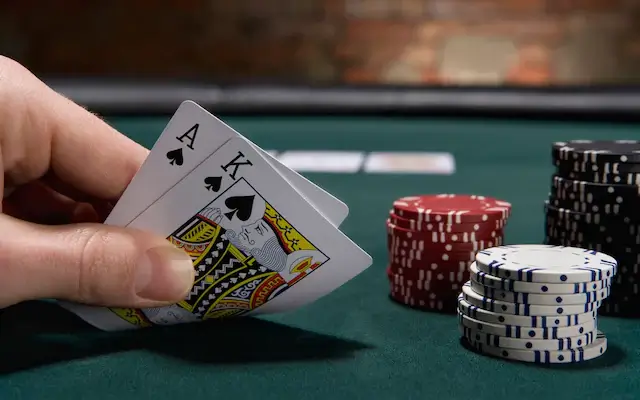The main skills in poker
How to become a strong player in poker? What skills are especially necessary to win at poker? Often, the advice the player receives boils down to playing aggressively and not pushing yourself to play too many hands. However, this concept is very vague and uncertain. So let’s take a look at what, in our opinion, are the four basic and necessary skills for a professional poker player.
Skill number 1. Mathematical calculation of probabilities.
The professional player doesn’t just wait for luck. He knows the basic odds well and is able to calculate them as they change during the game. For example, if you have a pair, the chance of picking up the set is 1 to 8.5. And if you fleshdrop on the flop, the chance of picking up the flush on the river is roughly 1 to 3.
No matter what the style of the player, in any case you can not ignore the “outs” which are the cards that can improve your hand. Improvement probability percentages can be calculated with a simple formula: count your outs, multiply by two, add unit percentages.
Skill number 2. Discipline in poker.
A bad poker player, as many know, is called the fish. How is the fish different from the professional player? The fish does not expect to win, but expects to be lucky. A professional is always looking to win and does not trust luck, and counts on the bad luck of his opponent. He is calm and tries to be more relaxed, tries to play with a cool head, does not accuse anyone of his faults, but tries to learn from them. And of course he understands that different variations of poker require different styles.
Skill number 3. Psychology in the game of poker.
It is necessary to evaluate, not oneself but the opponents. A professional player is always analyzing the game, trying to guess what cards his opponent has in his hand, and of course, he is trying to understand what his opponent thinks of him. Psychological skill in poker is trying to put yourself in your opponent’s shoes and understand his strategy, based on an understanding of yourself.
Skill number 4. Understanding the risks and benefits.
A good player knows that the world is not limited to one room to play poker. Therefore, it is important to calculate his financial capacity, how much money he puts not only in the game, but also in everyday life. And he never confuses his bank roll with the money he has to pay the rent.
Risk is good, but not everyone knows how to take risks correctly while sitting at the gaming table. The risk should be based on a cold calculation.

